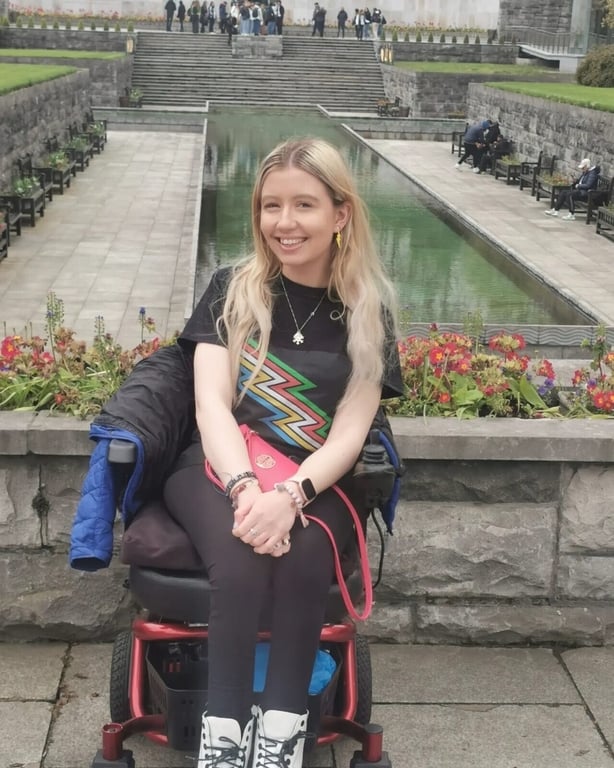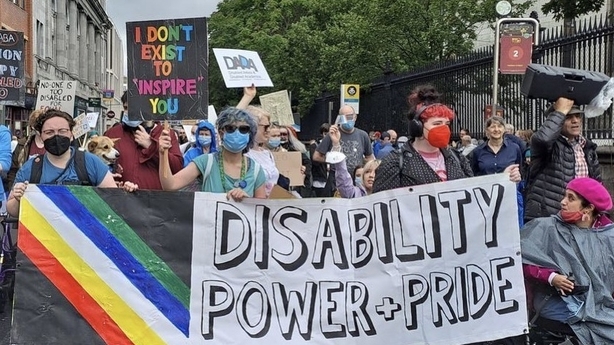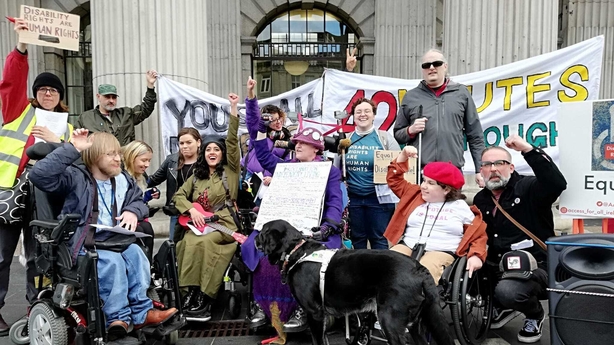This Sunday, RTÉ Radio 1 presents a new six-part radio docu-series that brings a personal perspective to life for physically disabled people in Ireland.
Produced by independent radio producer, Susan Dennehy, Last One on the Train provides a 26-minute window into the lives of each of the six young participants as they navigate their day-to-day in a wheelchair.

In episode one, listeners will meet 26-year-old disability advocate Leesa Flynn, a young woman who is set to become, in all likelihood, the first wheelchair user to qualify as a primary school teacher in Ireland.
As a vocal advocate for disability rights, and a member of Disability Power Ireland (DPI), Leesa was one of the minds behind the first Disability Pride parade being brought to Ireland.
"I'm a member of Disability Power Ireland and we've done a number of protests and parades in the last 18 months," she explains. "It's a grassroots organisation that celebrates disabled lives."
During the pandemic, Leesa discovered that Disability Pride parades existed in places across the globe, but had never been celebrated in Ireland. Once she joined the DPI committee, she worked towards bringing the celebration to Irish shores.
The first parade took place in 2022, and was mostly held online due to the still-present COVID-19 pandemic: "We did a lot online and we had some powerful conversations over Zoom, which was fantastic."

In July of 2023, the first in-person parade took place in Dublin, which Leesa described as being incredibly powerful.
"For so long we've shouted 'nothing about us, without us' but for so long it hasn't been like that. There's been a huge lack in society, I feel, of having the disabled voice heard. That community piece of having us all come together... of course, we're all different people with different life experiences and different perceptions of disability, but we all share, largely, the same struggles."
"It's not easy coming out and talking about the struggles you face all the time," she adds. "It sometimes feels like you're talking into the abyss, so to have people come and say that this has made a difference to their lives, and that it's empowered them in some small way, it's definitely been so inspiring for us to keep moving forward with the movement."

As well as being an activist, Leesa recently graduated from Maynooth University, becoming their first wheelchair-using student to qualify as a primary school teacher.
"It became apparent to me and my lecturers over the years that there is a large chance that I'm the first person in Ireland to do this," she explains. "There were definitely things that had never been looked at from a disabled perspective in the course.
"Of course it's a huge honour and something that I'm very proud of," she continues, "but, as you can imagine, it hasn't come without its hardships."
Having grown up as the only wheelchair user in her family and classroom, Leesa says she never considered how much of a difference it would have made to her to see someone like her growing up, and hopes she can become a role model to others.
"I'm hoping that in some small way, by seeing me in the classroom - whether you're a parent or a child - it will create some change within the attitudes towards disability. I may be the first person to do this, but I will by no means be the last."
Speaking on Last One on the Train, Leesa says that she hopes the series will normalise the varied and colourful lives of wheelchair users across the country.
"Oftentimes, people are just afraid of what they don't understand. If we can normalise that conversation about disability, that in itself is powerful. It's also about calling out the ableism that we experience in society everyday, whether that's internalised ableism in ourselves or, structurally, if there's places we can't get into because we're in wheelchairs or have mobility aids."
"It's about opening that up to people who have never experienced disability before and opening their eyes to what small things we can change in society to better the lives of disabled people and give them a more equal experience in society."


